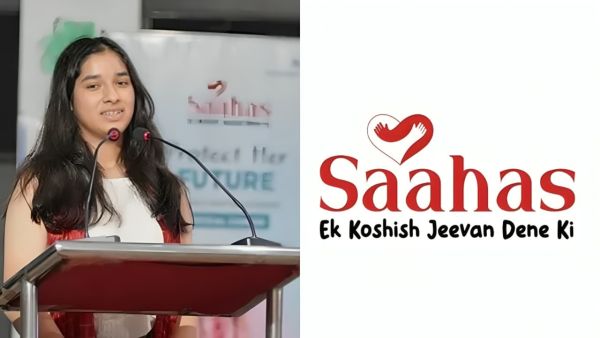
Saahas, a Delhi-based nonprofit founded in 2024 by Class XI student Navya Mrig, is working to normalise organ donation in India through simple conversations. The youth-led group holds workshops, seminars, and myth-busting sessions in schools, communities, and workplaces. By encouraging early family discussions, Saahas aims to overcome myths and hesitation, turning awareness into timely, life-saving consent.


Some of India’s most critical health choices become easier when they are discussed calmly at home or in schools rather than during emergencies in hospitals. Saahas, a Delhi-based nonprofit organisation founded in 2024 by Class XI student Navya Mrig of The Ram School, Moulsari (Gurugram), is helping families do just that.
The organisation focuses on organ donation, a decision that can save multiple lives but often gets delayed due to myths, lack of clarity and hesitation among families.
In the case of deceased organ donation, consent has to come quickly from the next of kin. This often happens when families are already under stress. Many hesitate or refuse because they are unsure about the facts. Saahas addresses this gap by encouraging people to talk about organ donation much before any crisis situation arises.
Through workshops and community meetings, the NGO explains in simple words how organ donation works. This includes the medical process of brain-stem death certification and the role of family consent.
Saahas organises interactive sessions across schools, resident welfare associations, workplaces, and hospitals. These workshops include Q&A rounds with doctors and transplant coordinators. The aim is to make organ donation a familiar topic rather than a taboo or a difficult subject.
The group also holds myth-busting talks to counter common fears. For example, many people wrongly believe organ donation disfigures the body or that it is only for certain religions. Saahas uses facts and real examples to clear these doubts.
To make it easier for volunteers and institutions, Saahas prepares ready-to-use kits. These include slide decks, facilitator notes, QR-linked checklists, and contact details of referral centres. Teachers, community leaders, and students can use these kits to organise their own sessions.
By doing so, the organisation creates a network of young ambassadors who carry the message forward to families, classrooms, and workplaces.
Saahas also builds trust by recognising the contribution of donor families. Small but respectful ceremonies are organised to honour both donor and recipient families. This not only spreads awareness but also gives visibility to real-life stories of lives saved through organ donation.
At its core, Saahas believes that youth can lead culture change if given the right tools. The organisation shows that awareness about organ donation can be built step by step—whether in a living room, a parent-teacher meeting, or a staffroom discussion.
In a country where every minute matters, Saahas proves that shifting the conversation on organ donation from panic in ICUs to calm community discussions can save lives.